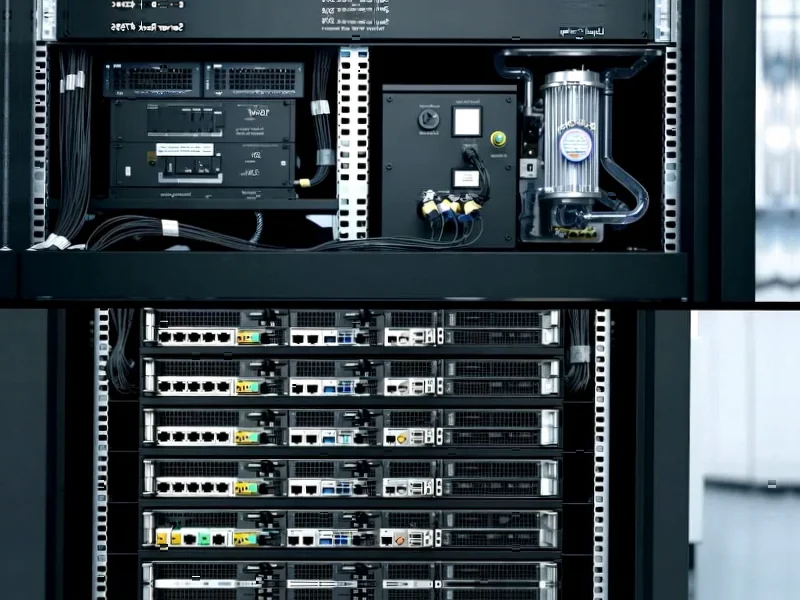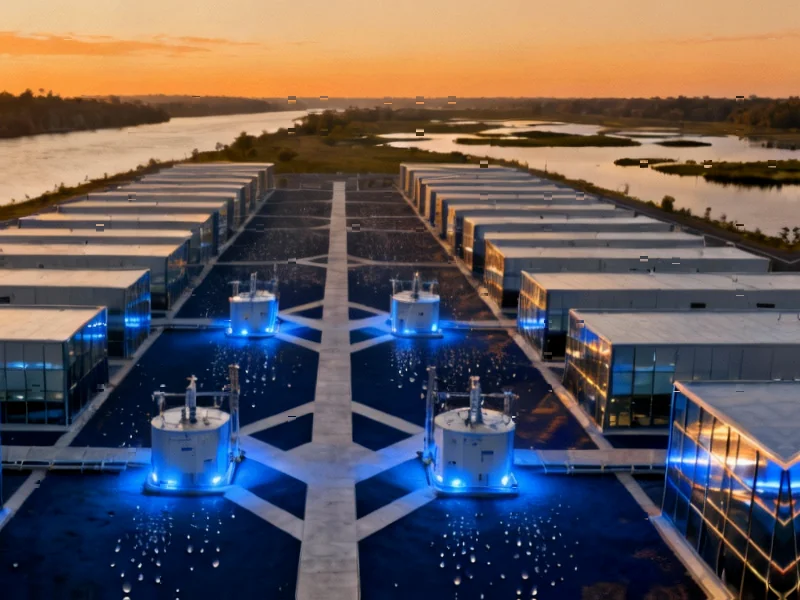According to DCD, Nvidia and Deutsche Telecom have officially confirmed their massive AI data center project in Munich, Germany, which will feature over 1,000 DGX B200 systems and RTX Pro servers with up to 10,000 Blackwell GPUs. The facility is scheduled to begin operations in the first quarter of 2026 and will deliver 500 petaflops of compute power, though the specific benchmark being used remains unclear. Deutsche Telecom will manage the “several thousand square meter” facility, while SAP provides its Business Technology Platform and Polarise contributes data center expertise. The project specifically targets manufacturing AI applications and already has around ten companies signed on, including Siemens, Agile Robots, Quantum Systems, and Perplexity. This confirms earlier reports from Deutsche Telecom’s Q2 2025 earnings about creating the world’s first “industrial AI cloud.”
The Flops Question
Here’s the thing about that 500 petaflops number – it’s basically meaningless without knowing what kind of flops we’re talking about. AI performance typically gets measured in FP8, while traditional high-performance computing uses FP64. And there’s a massive difference between them. A system boasting 100 petaflops of FP64 performance is way more powerful than one with 100 petaflops of FP8. So when Nvidia throws out that 500 petaflops figure without specifying the benchmark, it’s kind of like saying “this car goes really fast” without telling you whether it’s measured in miles per hour or kilometers per hour. The distinction matters, especially for industrial applications where precision calculations could be critical.
Manufacturing Focus
What’s interesting here is the specific focus on manufacturing AI. Germany’s industrial sector has been slower to adopt AI compared to tech or consumer applications, but it’s potentially where the biggest productivity gains could happen. Having Siemens on board makes perfect sense – they’re basically the king of German industrial automation. But I’m curious how many smaller manufacturers will actually be able to afford access to this kind of compute power. Industrial AI isn’t exactly cheap to develop or deploy, and we’re talking about some of the most expensive hardware on the planet here.
Timing and Capacity
Now, Q1 2026 feels both ambitious and… well, pretty far away in AI time. That’s basically two years from now. Given how fast this technology moves, will this facility still be cutting-edge when it launches? Also, Munich is Germany’s third-largest data center market according to DC Byte’s analysis, behind Frankfurt and Berlin. So it’s not exactly the primary hub, which makes me wonder about connectivity and whether being in Munich specifically gives them any particular advantage beyond Deutsche Telecom’s existing presence there.
The Robot Building Robots
There’s something almost poetic about Agile Robots using their H10-W robot to install server racks at the facility. It’s like the AI infrastructure is literally being built by the technology it will eventually power. But honestly, this feels more like a PR move than anything particularly revolutionary. Robots have been assembling things in factories for decades. The real question is whether this industrial AI cloud will actually deliver the manufacturing breakthroughs it promises, or if it will become another expensive piece of infrastructure that only the biggest companies can afford to use.




